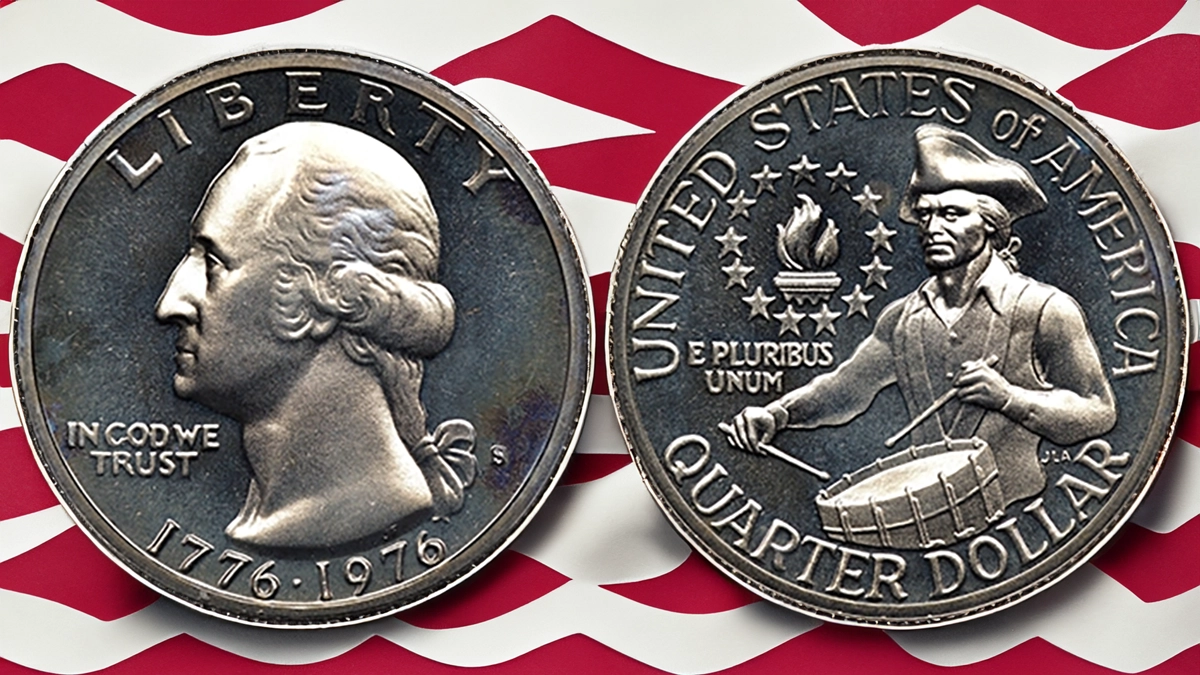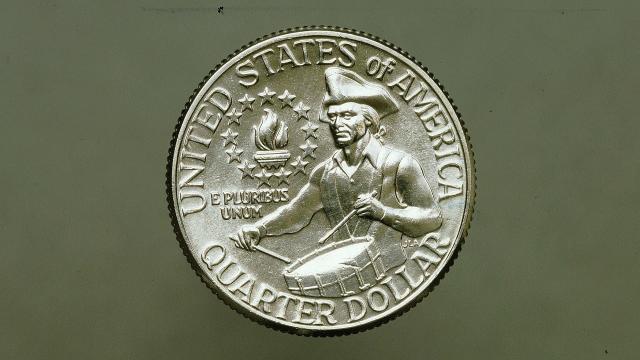Bicentennial quarters minted in 1975 and 1976 remain one of the most celebrated U.S. coins, thanks to their unique dual-date (1776–1976) and colonial drummer design. While most are worth only their face value, rare varieties and errors command astronomical sums.
One exceptional quarter is estimated at $5 million, while others have surpassed $100,000 due to their unique characteristics, mint errors, or outstanding grades.
This guide highlights these incredible coins and provides insight into what makes them so valuable.
The $5 Million Bicentennial Quarter
1. 1976 Experimental Planchet Quarter (One of a Kind)

This quarter was struck on an experimental planchet, making it one of the rarest Bicentennial coins in existence. Believed to have been part of early testing during production, it exhibits unusual metal composition and texture. Its rarity and historical importance have pushed its value to an estimated $5 million.
Also See:-4 Zodiac Signs Who Are Very Charming
- Key Features: Unique planchet material, one-of-a-kind status, exceptional condition.
- Value: $5,000,000
5 More Bicentennial Quarters Worth Over $100,000
2. 1976 Bicentennial Quarter Struck on a Gold Planchet

An extraordinary mint error where the quarter was struck on a gold planchet instead of the standard clad or silver. Its rarity and the allure of gold have made it a highly coveted collectible.
- Value: $250,000–$500,000
3. 1976 Doubled Die Obverse Bicentennial Quarter

A rare variety featuring doubling on the obverse elements, such as “Liberty” or “In God We Trust.” High-grade examples of this error can command six-figure sums.
- Value: $100,000–$150,000
4. 1976 Silver Proof Quarter Graded PR70

A perfect PR70 grade 1976-S silver proof quarter is a numismatic marvel. Its flawless condition and precise strike make it a highly sought-after piece.
- Value: $150,000–$200,000
5. Bicentennial Quarter Struck on Foreign Planchet

Some quarters were mistakenly struck on foreign planchets intended for other countries’ coinage. These errors are exceedingly rare and valuable.
- Value: $100,000–$200,000
6. 1976 Broad strike Bicentennial Quarter
This error occurs when the coin is struck without the retaining collar, resulting in an expanded, misshapen rim. High-grade examples of this mint error are extremely rare.
- Value: $100,000–$125,000
Why These Quarters Are So Valuable
- Rarity: These coins are rare anomalies, with limited numbers or unique production errors.
- Historical Significance: Bicentennial coins commemorate a milestone in American history, increasing their desirability.
- Condition: High-grade coins in perfect or near-perfect states fetch premium prices.
| Quarter Type | Unique Feature | Estimated Value |
|---|---|---|
| Experimental Planchet | Unique alloy, one-of-a-kind | $5,000,000 |
| Gold Planchet Error | Struck on gold | $250,000–$500,000 |
| Doubled Die Obverse | Doubling on text or images | $100,000–$150,000 |
| Silver Proof PR70 | Perfect grade | $150,000–$200,000 |
| Foreign Planchet Strike | Struck on planchets for foreign coins | $100,000–$200,000 |
| Broad strike Error | Rimless, expanded coin | $100,000–$125,000 |
What makes a Bicentennial quarter rare?
Rarity arises from mint errors (e.g., struck on the wrong planchet, doubled dies) or exceptional condition, such as a perfect grade.
Are these rare quarters still in circulation?
Most rare Bicentennial quarters have been discovered, but unique finds in personal collections or storage are possible.
How do I determine if my Bicentennial quarter is valuable?
Check for errors like doubled dies or unusual weights. Certification by PCGS or NGC is crucial for authentication and grading.
Where can I sell a rare Bicentennial quarter?
Sell through reputable coin dealers, auction houses like Heritage Auctions, or online platforms specializing in collectibles.
Conclusion
Rare Bicentennial quarters represent an intriguing intersection of history, artistry, and numismatics. Whether due to striking errors, unique materials, or flawless grades, these coins have achieved legendary status.
For collectors, identifying these rare varieties is a chance to own a piece of U.S. history worth a fortune.


